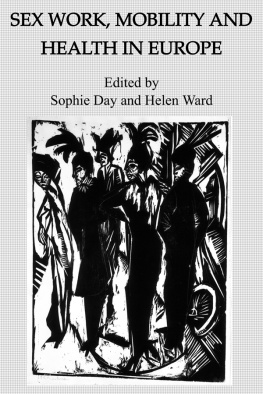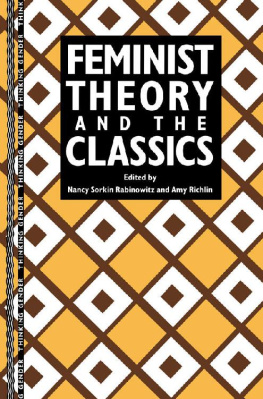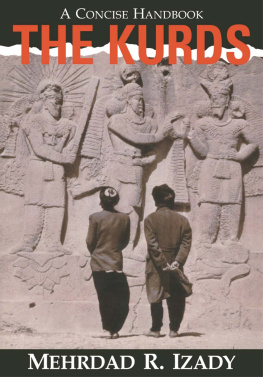ALTERNATIVE CONVENTIONAL DEFENSE POSTURES IN THE EUROPEAN THEATER
Volume 3: Force Posture Alternatives for Europe After the Cold War
Edited by
Hans Gnter Brauch
Robert Kennedy
With forewords by
Carl Friedrich von Weizscker,
physicist and philosopher, and
Paul C. Warnke, former director,
U.S. Arms Control and Disarmament Agency
| USA | Publishing Office: | Taylor & Francis 1101 Vermont Avenue, NW Suite 200 Washington, DC 20005-3521 Tel: (202) 289-2174 Fax: (202) 289-3665 |
| Distribution Center: | Taylor & Francis 1900 Frost Road Suite 101 Bristol, PA 19007-1598 Tel: (215) 785-5800 Fax: (215) 785-5515 |
| UK | Taylor & Francis Ltd. 4 John St. London WC1N 2ET Tel: 071 405 2237 Fax: 071 831 2035 |
ALTERNATIVE CONVENTIONAL DEFENSE POSTURES IN THE EUROPEAN THEATER: Volume 3, Force Posture Alternatives for Europe After the Cold War
Copyright 1993 Taylor & Francis. All rights reserved.
Except as permitted under the United States Copyright Act of 1976, no part of this publication may be reproduced or distributed in any form or by any means, or stored in a data base or retrieval system, without the prior written permission of the publisher.
1 2 3 4 5 6 7 8 9 0 B R B R 9 8 7 6 5 4 3 2
A CIP catalog record for this book is available from the British Library.
 The paper in this publication meets the requirements of the ANSI Standard Z39.48-1984(Permanence of Paper
The paper in this publication meets the requirements of the ANSI Standard Z39.48-1984(Permanence of Paper)
Library of Congress Cataloging-in-Publication Data
Alternative conventional defense postures in the European theater /
edited by Hans Gnter Brauch and Robert Kennedy : forewords by
Carl Friedrich von Weizscher and Paul Warnke
p. cm.
Includes bibliographic references.
Contents: v. 3 Force Posture Alternatives for Europe After the Cold War
1. EuropeDefenses. 2. North Atlantic Treaty OrganizationArmed Forces.
3. United StatesArmed Forces. 4. Germany (West)Armed Forces. I. Brauch,
Hans Gnter, 1947. II. Kennedy, Robert, 1939.
UA646.A633 1989
35503304dc20
ISBN 0-8448-1728-7
89-22204
CP
This volume, edited jointly by the American strategic expert Robert Kennedy and the German peace researcher Hans Gnter Brauch, takes up conceptual ideas developed by Horst Afheldt and myself, as well as others on both sides of the Atlantic, since the 1960s. Our aim has been to contribute to the development of concepts that would reduce the danger of a third world war by the creation of more stable structures in the context of a defensively oriented conventional defense posture. In this volume a variety of alternative approaches to European conventional defense, driven for the most part by similar strategic considerations, are presented by German and American experts to a larger international audience.
Changes in the declaratory military policies of former Soviet leadership under Mikhail Gorbachev, which were being reflected in a Soviet move toward defensive defense, German unification, and the immense political changes now under way in Central and Eastern Europe, require a rethinking of the force structures for European defense in terms of a changing structure of peace and security in Europe. In moving toward a new political structure of peace in Europe, technical force structure designs, such as those developed by Horst Afheldt, Lutz Unterse-her, Steven Canby, and others, can contribute to the avoidance of a third world war by overcoming the dilemmas of deterrence, by avoiding a new arms race, and by enhancing a process that will in the long run eliminate the institution of war as a means for the resolution of conflicts.
Over the years, my own ideas on the problems of war and peace have focused on two hypotheses:
A third world war was possible under Cold War conditions.
It is necessary and possible to eliminate the institution of war.
Logically, both hypotheses are not closely connected. So far, both major powers have succeeded in avoiding the third world war. Some deduce from this the sanguine hope that a nuclear war will never occur. However, deterrence has not and probably never will be able to eliminate totally the possibility of war as an institution. Since 1945 the avoidance of nuclear confrontation offered the yardstick for war prevention. Those wars that did occur were regional conflicts considered highly unlikely to result in a nuclear escalation. It is questionable whether such a global situation can be maintained permanently. Conflict resolution through limited war is a pattern of stability for a specific historical period. Moreover, it may be added that the old approach to nuclear deterrence in Europe, e.g., NATOs former concept of flexible response, was based fundamentally on the threat of limited nuclear use. This is so, in my view, because strategic weapons only deter an opponents use of his own strategic weapons. Thus an attack that includes the employment of limited nuclear forces cannot credibly be deterred by a major strategic threat. Hence, NATOs former concept of flexible response made it inevitable that limited threats were deterred by the threat of limited use of nuclear weapons.
War prevention by nuclear deterrence can never be absolutely certain. Technical errors are possible, and a single breakdown of control in a century is sufficient to cause a catastrophe. More likely are miscalculations with respect to escalation. Thus in the long run, a deterrence system that relies on nuclear weapons is unacceptable. Nuclear weapons have offered a pause in great power conflict that may come to an end tomorrow. They have not provided a framework for a political system that can offer long-term peace and security. Rather they threaten the existence of human kind. We must therefore now focus our efforts on developing a nonnuclear security system.
In Europe, as a minimum one must develop a conventional defense posture that does not rely on the threat of a nuclear-first use. However, here a sharp distinction has to be made. Only a purely defensively oriented conventional force posture would be better than one that relies on the threat of nuclear use. It would be wrong to believe that the elimination of nuclear deterrence alone would make war less likely. Nuclear weapons have not been sufficient to prevent war. However, they have not been the cause. The return to purely or predominantly conventional defense postures in their more traditional forms, which have included offensive capabilities, could drastically increase the likelihood of war. The traditional approaches to conventional defense enhance the risk of entering into a race between tank and antitank weapons. Thus official NATO plans pertaining to conventional armament modernization will not provide an effective deterrent force. The lesson we have learned from nuclear weapons should not be forgotten, and that lesson must be extended to conventional weapons as well: war prevention, not victory is the task. Even if peace can be maintained, nuclear weapons will remain with us both physically and, even if all of them were destroyed, intellectually. We cannot afford any war, not even a conventional one, in our region. Therefore, conventional force structures must fulfill three conditions:









 The paper in this publication meets the requirements of the ANSI Standard Z39.48-1984(Permanence of Paper)
The paper in this publication meets the requirements of the ANSI Standard Z39.48-1984(Permanence of Paper)